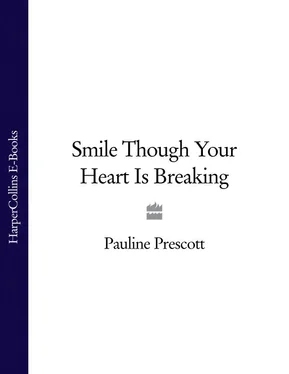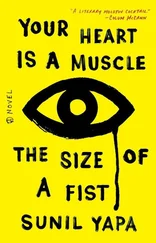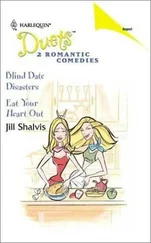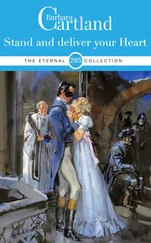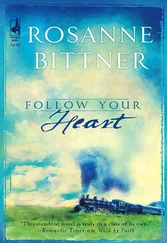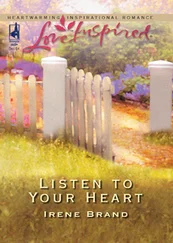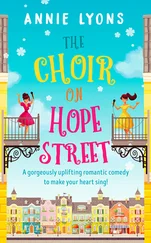Paul was to remain in that nursery for the next two and a half years. As Mrs Cotter had assured me he would, he settled in well and the staff continued to be kind and understanding. I visited him whenever I could but the realities of my situation meant that was only every few months at best. His nursery fees were debited directly from my wages, leaving me with little spare. The train fare was expensive and near impossible on a Sunday. I had to take a day off work each time. The journey left me emotionally drained.
Each time I saw my son I couldn’t get over how much he’d grown. He, meanwhile, seemed to be less and less aware of whom I was. After a while, he began to favour one of his young nursery nurses, which cut me to the quick. My mother, who came with me when she could, would walk alongside as I pushed Paul’s pram through a local park, clearly loving every minute of being with her grandson. I always hoped that she’d come up with a plan on those visits; that she’d tell me she’d thought of something and we could take him home with us after all, but she never did. She just told me, time and again, that my visits were doing no good. ‘You have to let him go, Pauline,’ she’d say as I sobbed in her arms all the way home. ‘This isn’t fair on either of you.’
It was true that leaving him each time was a new wrench, but I just couldn’t bring myself to give up my son. Foolishly perhaps, I was still hoping for something to come along and save us. Was it really too much to wish for?
I WAS STANDING AT THE BUS STOP UNDER THE FAMOUS EASTGATE CLOCK IN Chester waiting to go home after a long day working at Quaintways. Having progressed to an improver in the salon by then, I’d been on my feet all day cutting and setting hair.
It was a fine evening and I checked my watch. The bus was late and so was I. Mum expected me home for supper at six. It was shepherd’s pie. I was always amazed how she could eke out a pound of mince until the end of each week.
A voice at my elbow startled me. ‘Hi there. It’s Pauline, isn’t it?’
I turned and found myself face to face with a man I knew only as the ex-boyfriend of a girl I worked with at Quaintways called Barbara Hill. He was a steward on the Cunard and White Star shipping lines, one of the young men known at the time as ‘the Hollywood waiters’ because they were all so well dressed and suntanned. To my surprise, Barbara, who looked like Kim Novak, had dumped him recently for an American airman called Harry.
I smiled shyly. I’d always thought this chap of Barbara’s was rather nice. He was certainly very handsome and, although not very tall, he had the strong physique of a sportsman. I learned later that he was a prizewining boxer among fellow stewards on the ships. It didn’t surprise me. He reminded me of Dirk Bogarde in Doctor at Sea. He had the same pleasant smile and gentle way about him.
Having recently dated a steward called Chris I knew that he and the boy at the bus stop had both just returned from a three-month voyage to New Zealand. As I turned to say hello I remembered his name. It was John – John Prescott.
‘Hi, John,’ I said brightly. ‘You’re back then?’
‘Yes, we docked a few days ago.’ He smiled and his suntan made his teeth look really white.
There was an awkward pause.
‘I was so sorry to hear about you and Barbara,’ I said, shaking my head.
‘Oh, thanks, but that didn’t matter,’ he replied, stoically. ‘I had another girlfriend in New Zealand anyway.’ He paused. ‘Are you still seeing Chris?’
‘No. He found another girl. They’re getting married.’
‘So is Barbara. She’s moving to the States.’
‘Oh.’ I stared down at my shoes, trying not to think what might have been.
‘Do you fancy going to the pictures one night, then?’
I looked up. My mind raced ahead of itself. If John knew Barbara and he also knew Chris, whom I’d been introduced to through my cousin, then he probably knew my history and yet he was still asking me out. He was certainly smiling warmly enough.
‘Yes, OK,’ I replied, on a whim. My bus pulled up just as I spoke, so I opened my handbag and fumbled with my purse. Stepping on to the bottom step, I turned and smiled back at him.
‘See you outside the Regal on Saturday night,’ he called out as the bus pulled away. ‘Seven o’clock?’
I gave him a little wave. His hand came up in a sort of salute and I couldn’t help but laugh. All the way home, I hoped that he did know about Paul so that I wouldn’t have to tell him. Not that I was ashamed – I was never ashamed of my son – but it was always a little awkward telling someone for the first time. John seemed a nice enough chap, though. I smiled at the thought of an evening in his company. I was eighteen years old. It would do me good to have a boyfriend again.
I’d always liked men in uniform, which probably stemmed back to seeing my dad in khaki during the war. The Cunard and White Star stewards not only had smart uniforms, they were especially sought after by all the girls in Liverpool and Chester for other reasons. Having experienced the finest luxury the world’s greatest cruise ships had to offer, they knew just how to treat a girl. They earned good money, especially on their longer voyages, and there was something terribly romantic about a man in a navy jacket and black bow tie sending you postcards and messages from around the world.
A few days later, John took me to the Regal to see a film I don’t now recall a single thing about. My uncle Wilf, the husband of my father’s sister Jane, was probably playing the organ as usual, rising out of the floor on the Wurlitzer, but I don’t remember what he played. We sat quite near the front but after a few minutes he suggested we move to the back row. ‘You’re talking too loudly,’ he said, which I’m sure was just a ruse.
I liked John right from the start. He was funny and he made me laugh. ‘You remind me of someone famous, now who is it…?’ he said.
‘Elizabeth Taylor?’ I asked hopefully, always flattered when the comparison was made.
‘No – Joyce Grenfell!’ he replied with a grin.
Chatting over a drink afterwards, I discovered quite a lot about him and what life was like at sea. He told me about one steward on their last voyage who’d kept them awake playing the guitar and singing all the time. His name was Tommy Steele. I learned of John’s strong political convictions and his dedication to improving conditions at sea, even if it made him unpopular with his employers.
I was surprised to discover that John’s father, a disabled railway signalman from Liverpool known as ‘Bert’, was a friend of my boss Mr Guifreda. John’s mother Phyllis was a Quaintways client. I wondered if I knew her and that – if I did – whether she knew about Paul, too.
I found out soon enough because John took me home to meet her a week or so later. I recognized her straight away. She was a striking, terribly smart lady who was also a professional dressmaker and always wore the most beautiful clothes. I thought she was quite posh. Like my mother, she’d been in service. Like my parents, she and Bert had met by chance, although he’d spotted her on a railway platform instead of across a rooftop. We should have got on like a house on fire because of our common interests but straight away I picked up that Phyllis Prescott wasn’t very keen on me. I could guess why. A short time afterwards, my fears were confirmed. Chatting to a neighbour of hers, Phyllis complained, ‘My John’s taken up with a young girl who’s had a baby, you know. I’m sure he could do a lot better.’
‘Oh, what’s the girl’s name?’ the neighbour asked suspiciously.
‘Pauline Tilston.’
Читать дальше
